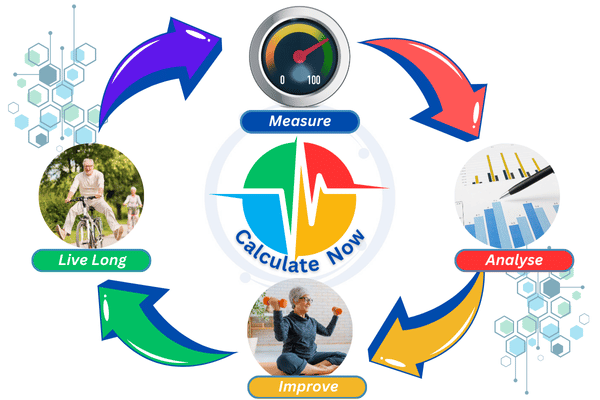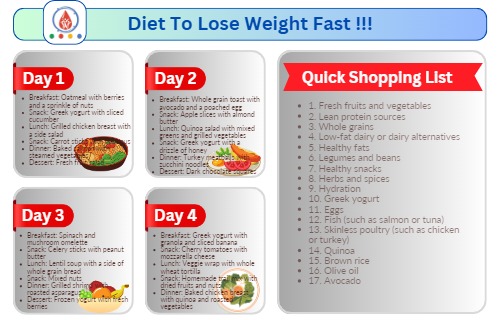Explore World Life Expectancy Calculator - Best Tool
Explore global life expectancy with our life expectancy calculator. Discover factors influencing lifespan with our Life expectancy tool.

Calculate Your Life Expectancy in Seconds

Life expectancy in WORLD gives us a picture of overall health and well-being. In WORLD, the average life expectancy for males is 70.1 years, while females tend to live longer with an average of 74.9 years.
When we talk about "healthy" life expectancy, which considers quality of life and years lived in good health, males in WORLD can expect around 62 healthy years, while females can look forward to about 64.5 healthy years.
These numbers reflect the general health, healthcare system, and living conditions in WORLD. Comparing with global averages shows us how WORLD is doing in terms of longevity and well-being. Factors like diet, healthcare access, and lifestyle choices all play a part in determining these figures. Understanding life expectancy can help us make informed decisions to live longer, healthier lives.
What is Life Expectancy?
Life expectancy is the measure of the average number of years that an individual can expect to survive. It takes in to consideration several demographic and health data. Our calculator aids in obtaining the estimation based on certain personal information.How Life Expectancy is Calculated?
Life expectancy is shaped by a variety of factors, including health, lifestyle, genetics and environment. Managing these elements can significantly influence one's overall lifespan and well-being. Use our Life-Expectancy Calculator to calculate your approximate life span.What Factor influence Life Expectancy?
Several factors are responsible for shaping the life expectancy of an individual which include: health, physical stature, family background and place of dwelling. Controlling these aspects may alter the expected lifespan and quality of life.The following factors that affect life expectancy are chronic stress, health care access, physical activity, nutrition, social networking and economic considerations:
Medical conditions: Overweight and obesity, lack of medical care and neglect affects mental and physical wellbeing’s scope of effectiveness.
Habitual: Smoking, diet and alcohol consumption rate among people may determine their life span.
Family history: Genetics and inherited health and medical conditions can affect your life expectancy.Environment: Where you live, exposure to pollution, and access to healthcare can also influence how long you live.
Life Expectancy Calculator FAQ
What is a life expectancy calculator?A life expectancy calculator helps estimate your expected lifespan based on health, lifestyle, location, and other key factors. This tool can provide insights into how different habits and conditions may impact your life expectancy.
How accurate is a life expectancy calculator?
Life expectancy calculators use statistical data, health indicators, and lifestyle factors to make predictions. While they provide a general estimate, they cannot account for unexpected life events.
Can a life expectancy calculator show average lifespan in different countries?
Yes, our global life expectancy calculator compares lifespan averages across regions, helping you see how life expectancy varies between countries.
What factors influence life expectancy?
Life expectancy is influenced by diet, exercise, healthcare access, economic status, and environmental conditions. Our calculator uses these factors to give you a personalized estimate.
How can I use the life expectancy calculator to improve my health?
By inputting lifestyle data, the calculator highlights areas for potential improvement, helping you understand changes that can positively impact longevity.
How does a global life expectancy calculator differ from a regional one?
A global life expectancy calculator compares life expectancy statistics worldwide, showing trends and averages that may vary from country to country.
Is life expectancy the same for men and women globally?
No, life expectancy differs by gender due to various biological, social, and lifestyle factors. Our calculator reflects these differences and provides gender-specific estimates where applicable.
What is the average life expectancy globally?
As of recent statistics, global life expectancy averages around 73 years, though this varies widely by region. Use our life expectancy calculator to explore how these averages differ.
Life Expectancy Calculator for Other Countries :
Afghanistan | Albania | Algeria | Angola | Antigua and Barbuda | Argentina | Armenia | Australia | Austria | Azerbaijan | Bahamas | Bahrain | Bangladesh | Barbados | Belarus | Belgium | Belize | Benin | Bhutan | Bolivia | Bosnia and Herzegovina | Botswana | Brazil | Brunei Darussalam | Bulgaria | Burkina Faso | Burundi | Cabo Verde | Cambodia | Cameroon | Canada | Central African Republic | Chad | Chile | China | Colombia | Comoros | Congo | Costa Rica | Côte d Ivoire | Croatia | Cuba | Cyprus | Czechia | North Korea | Democratic Republic of the Congo | Denmark | Djibouti | Dominican Republic | Ecuador | Egypt | El Salvador | Equatorial Guinea | Eritrea | Estonia | Eswatini | Ethiopia | Fiji | Finland | France | Gabon | Gambia | Georgia | Germany | Ghana | Greece | Grenada | Guatemala | Guinea | Guinea-Bissau | Guyana | Haiti | Honduras | Hungary | Iceland | India | Indonesia | Iran | Iraq | Ireland | Israel | Italy | Jamaica | Japan | Jordan | Kazakhstan | Kenya | Kiribati | Kuwait | Kyrgyzstan | Laos | Latvia | Lebanon | Lesotho | Liberia | Libya | Lithuania | Luxembourg | Madagascar | Malawi | Malaysia | Maldives | Mali | Malta | Mauritania | Mauritius | Mexico | Micronesia | Mongolia | Montenegro | Morocco | Mozambique | Myanmar | Namibia | Nepal | Netherlands | New Zealand | Nicaragua | Niger | Nigeria | North Macedonia | Norway | Oman | Pakistan | Panama | Papua New Guinea | Paraguay | Peru | Philippines | Poland | Portugal | Qatar | Republic of Korea | Republic of Moldova | Romania | Russian Federation | Rwanda | Saint Lucia | Saint Vincent and the Grenadines | Samoa | Sao Tome and Principe | Saudi Arabia | Senegal | Serbia | Seychelles | Sierra Leone | Singapore | Slovakia | Slovenia | Solomon Islands | Somalia | South Africa | South Sudan | Spain | Sri Lanka | Sudan | Suriname | Sweden | Switzerland | Syria | Tajikistan | Thailand | Timor-Leste | Togo | Tonga | Trinidad and Tobago | Tunisia | Turkey | Turkmenistan | Uganda | Ukraine | UAE | United Kingdom | Tanzania | USA | Uruguay | Uzbekistan | Vanuatu | Venezuela | Vietnam | Yemen | Zambia | ZimbabweDisclaimer - Life Expectancy Tool :
The aim of our Life Expectancy Calculator which is based on statistical data, is to allow learning about a person’s life span. Nevertheless, this should never be seen as an accurate expectancy figure. A person may have several internal health determinants such as undiagnosed diseases or external variables, for example accidents or abrupt lifestyle changes which may not have been completely captured during the test. Therefore, results may differ from actual outcomes.
The statistics which underlie the calculations are suitably aggregated within the available data on respective countries and regions, but the mentioned tool does not take into consideration personal history of diseases or individual genetic or health characteristics. It is important to understand that the calculator is just a tool for information purpose and should not be used as a substitute for a qualified medical advise or diagnosis.
By accessing this tool and results you agree to our terms and conditions. Proceed.Fit, its owners, and developers are not liable for any decisions made based on the results provided by this tool. We strongly advise you to consult with your healthcare provider for an accurate health assessment and personalized medical advice.


_.png)
_.png)


_(1)_1.png)
_1.png)
_1.png)
_(1)_1.png)








